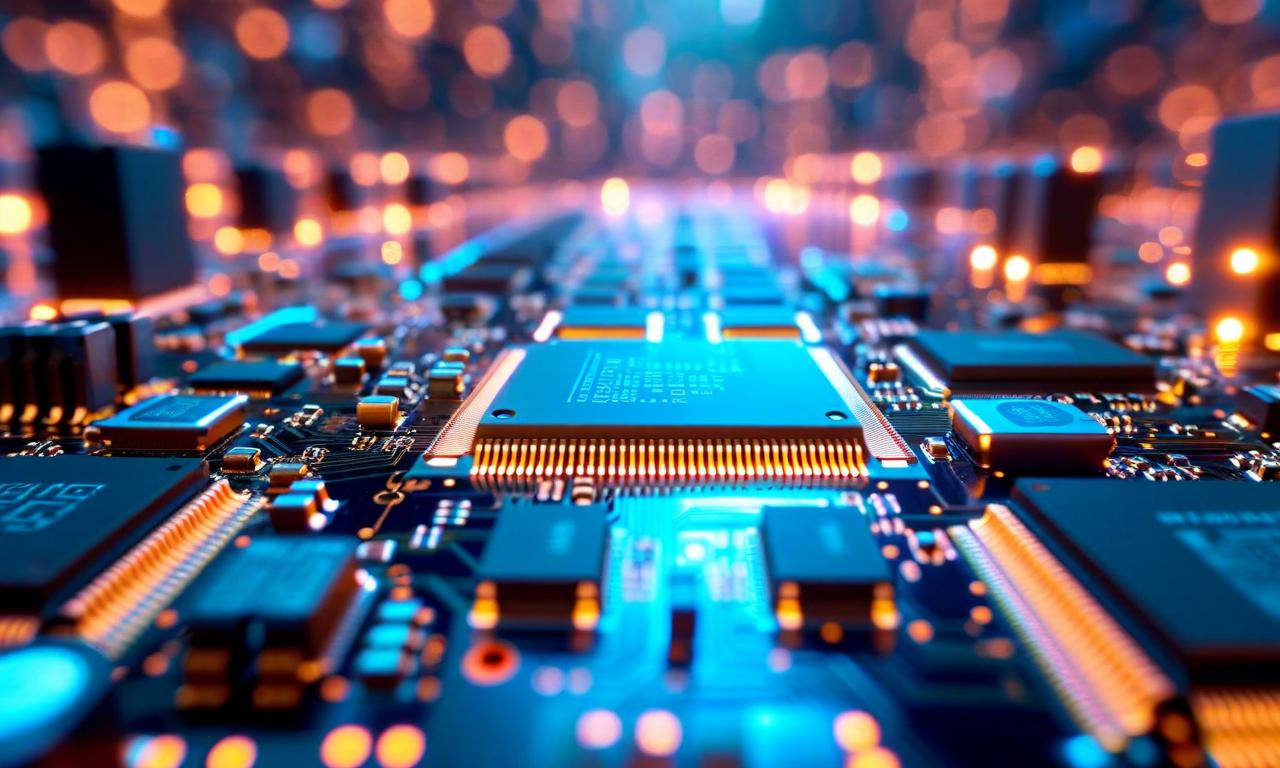Nvidia Achieves $5 Trillion Market Value, Driven by AI Chip Partnerships and Record Bookings
Nvidia has become the first company to reach a $5 trillion market valuation, just four months after hitting $4 trillion. The company reported $500 billion in bookings for its AI processors and announced new chip supply agreements with Nokia, Samsung Electronics, and Hyundai Motor Group. Nvidia plans to build seven supercomputers for the U.S. Department of Energy, including one with 100,000 Blackwell AI chips. The company also introduced a system to connect quantum computers with AI chips. Nvidia's stock has rallied 50% year-to-date, with CEO Jensen Huang dismissing concerns about an AI bubble.

*this image is generated using AI for illustrative purposes only.
Nvidia, the leading graphics processing unit (GPU) manufacturer, has become the first company to achieve a $5 trillion market valuation, reaching this milestone just four months after crossing the $4 trillion mark. This significant increase comes on the heels of the company announcing $500 billion in bookings for its artificial intelligence (AI) processors and new chip supply agreements with major tech companies.
Key Developments
- Historic Valuation: Nvidia's market capitalization has surpassed $5 trillion, making it the first company to reach this milestone.
- AI Processor Bookings: The company reported $500 billion in bookings for its AI processors.
- New Partnerships: CEO Jensen Huang announced new chip supply agreements with Nokia, Samsung Electronics, and Hyundai Motor Group.
- Stock Performance: Nvidia's stock has rallied 50% year-to-date.
New Projects and Partnerships
Nvidia has announced several new initiatives that are driving investor enthusiasm:
U.S. Department of Energy Supercomputers: Nvidia plans to build seven new supercomputers for the U.S. Department of Energy.
- The largest of these is expected to contain 100,000 Blackwell AI chips, built in collaboration with Oracle.
- These supercomputers are intended to aid in maintaining and developing the U.S. nuclear weapons arsenal.
Developer Conference Announcements: CEO Jensen Huang unveiled new products and deals at a recent developer conference, including partnerships with Nokia, Samsung Electronics, and Hyundai Motor Group.
Quantum Computing Initiative: Nvidia introduced a new system designed to connect quantum computers with its artificial intelligence chips, further expanding its technological reach.
Market Outlook
CEO Jensen Huang dismissed concerns about an AI bubble, stating that the company's latest chips are projected to generate half a trillion dollars in revenue. This optimistic outlook, coupled with the new partnerships and technological advancements, has fueled investor confidence in Nvidia's continued growth in the AI sector.
Geopolitical Context
The news comes amid ongoing U.S.-China trade tensions, which Nvidia must navigate as it continues its global AI rollout. The company's involvement in building supercomputers for the U.S. Department of Energy underscores the strategic importance of AI technology in national security contexts.
In a recent development, China's Foreign Minister commented on Nvidia's desire to sell chips in China, expressing hope that the US would take concrete actions to maintain stability in global supply and industrial chains. This statement highlights the complex geopolitical landscape Nvidia must navigate as it seeks to expand its market presence in China.
Market Impact
The following table summarizes the key financial impacts of these developments:
| Metric | Value |
|---|---|
| Market Valuation | $5+ trillion |
| AI Processor Bookings | $500 billion |
| YTD Stock Performance | 50% |
Nvidia's growth in the AI sector continues to drive its stock performance and market valuation. As the company expands its partnerships and secures significant government contracts, it strengthens its position in the AI chip market. However, the ongoing global trade tensions and the strategic nature of AI technology in national security applications may present both opportunities and challenges for Nvidia's future growth. The recent comments from China's Foreign Minister underscore the delicate balance Nvidia must maintain as it seeks to expand its global reach while navigating complex international relations.





























